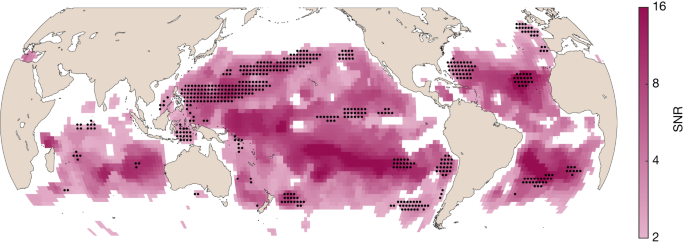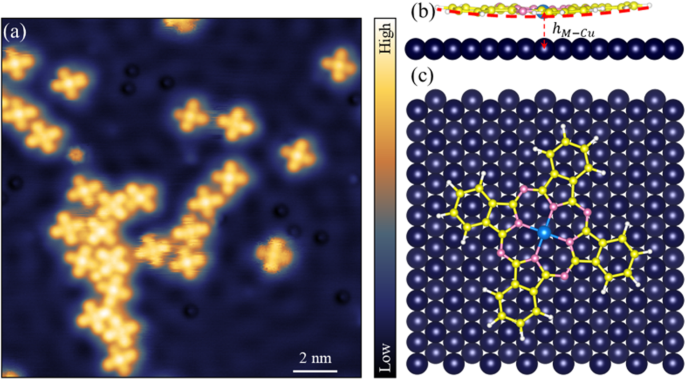2023-07-12 マサチューセッツ工科大学(MIT)
◆研究者らは海洋生態系がどのように変化しているのかはまだはっきりしていないが、気候変動がその要因であることはほぼ確実であると述べています。これにより、人間活動が地球上の生命に与える影響が示され、海洋生態系の変化を迅速に検出する手段が提供される可能性があります。
<関連情報>
- https://news.mit.edu/2023/study-oceans-color-changing-climate-change-0712
- https://www.nature.com/articles/s41586-023-06321-z
海洋生態系を示す指標から、地球規模の気候変動傾向が検出される Global climate-change trends detected in indicators of ocean ecology
B. B. Cael,Kelsey Bisson,Emmanuel Boss,Stephanie Dutkiewicz & Stephanie Henson
Nature Published:12 July 2023
DOI:https://doi.org/10.1038/s41586-023-06321-z

Abstract
Strong natural variability has been thought to mask possible climate-change-driven trends in phytoplankton populations from Earth-observing satellites. More than 30 years of continuous data were thought to be needed to detect a trend driven by climate change1. Here we show that climate-change trends emerge more rapidly in ocean colour (remote-sensing reflectance, Rrs), because Rrs is multivariate and some wavebands have low interannual variability. We analyse a 20-year Rrs time series from the Moderate Resolution Imaging Spectroradiometer (MODIS) aboard the Aqua satellite, and find significant trends in Rrs for 56% of the global surface ocean, mainly equatorward of 40°. The climate-change signal in Rrs emerges after 20 years in similar regions covering a similar fraction of the ocean in a state-of-the-art ecosystem model2, which suggests that our observed trends indicate shifts in ocean colour—and, by extension, in surface-ocean ecosystems—that are driven by climate change. On the whole, low-latitude oceans have become greener in the past 20 years.



